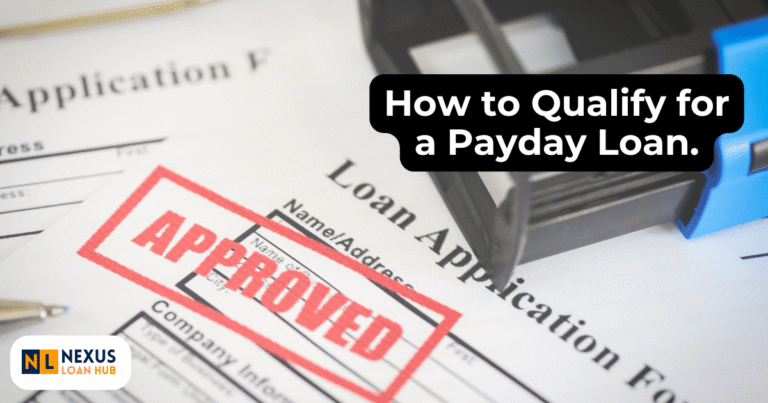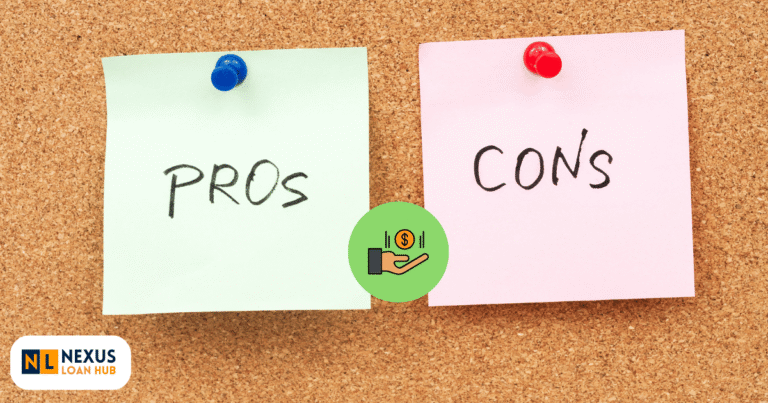Summary: Getting a payday loan without traditional employment is challenging but not impossible. While most payday lenders require proof of regular income, alternative income sources like unemployment benefits, disability payments, Social Security, or freelance work may qualify you for a loan. Lenders primarily focus on your ability to repay rather than employment status alone. This guide explores what lenders look for, alternative income sources that qualify, and practical steps to improve your approval chances when unemployed.
Finding yourself in need of quick cash without a steady job can feel overwhelming. Whether you’re between jobs, dealing with unexpected expenses, or facing a financial emergency, you might wonder if payday loans are still an option. The short answer is: it depends on your specific situation and the lender’s requirements.
Understanding Payday Loan Requirements
Payday loans are short-term, high-interest loans designed to bridge financial gaps until your next paycheck. Traditional payday lenders typically require borrowers to have a job, but their primary concern isn’t your employment status – it’s your ability to repay the loan.
Most payday lenders have basic requirements that include:
- Being at least 18 years old
- Having a valid government-issued ID
- Maintaining an active checking account
- Providing proof of income
- Meeting minimum income thresholds (usually $1,000-$1,200 monthly)
The key factor is that last requirement: proof of income. This is where unemployed borrowers can still potentially qualify.
Alternative Income Sources That May Qualify
Lenders understand that income comes in many forms beyond traditional employment. Several alternative income sources may make you eligible for a payday loan:
Government Benefits: Social Security payments, disability benefits, veterans’ benefits, and unemployment compensation are often accepted as qualifying income. These payments demonstrate a predictable income stream that lenders can verify.
Freelance and Contract Work: If you’re a freelancer, contractor, or gig worker, your earnings may qualify even without traditional employment. Documentation like bank statements showing regular deposits or 1099 forms can serve as proof of income.
Retirement Income: Pension payments, retirement account withdrawals, or annuity payments provide the steady income stream lenders seek.
Investment Income: Dividends, rental property income, or other investment returns may qualify as acceptable income sources.
Alimony and Child Support: Court-ordered payments can serve as qualifying income, though you’ll need documentation proving these payments are regular and ongoing.
Other Sources: Some lenders may accept income from sources like trust funds, regular financial support from family members, or income from selling goods online.
What Lenders Actually Look For
Understanding what payday lenders prioritize can help you better prepare your application. Their primary concerns include:
Income Stability: Lenders want to see that your income is regular and predictable. Whether it’s weekly unemployment benefits or monthly Social Security payments, consistency matters more than the source.
Income Amount: Most lenders require minimum monthly income between $1,000 to $1,200. This threshold ensures you can reasonably repay the loan while covering basic living expenses.
Banking History: A active checking account with a history of deposits shows financial stability. Lenders prefer accounts that have been open for at least 30-90 days.
Debt-to-Income Ratio: While payday lenders are generally more lenient than traditional lenders, they still consider your existing financial obligations relative to your income.
Repayment Ability: Ultimately, lenders want confidence that you can repay the loan by the due date, typically within two to four weeks.
Strategies to Improve Your Approval Chances
If you’re unemployed but have qualifying income, several strategies can strengthen your application:
Gather Strong Documentation: Compile thorough proof of your income sources. This might include benefit award letters, bank statements showing regular deposits, tax returns, or official correspondence from government agencies.
Choose the Right Lender: Not all payday lenders have identical requirements. Some specialize in working with borrowers who have non-traditional income sources. Research lenders who explicitly state they accept alternative income.
Apply for Smaller Amounts: Requesting a smaller loan amount increases your approval odds. Start with the minimum you need rather than the maximum available.
Consider Online Lenders: Online payday lenders often have more flexible requirements than storefront locations and may be more accommodating to alternative income sources.
Maintain Banking Stability: Ensure your checking account is in good standing with no recent overdrafts or negative balances. Some lenders review banking activity as part of their approval process.
Important Considerations and Alternatives
Before pursuing a payday loan without employment, consider the implications carefully. Payday loans carry high interest rates and fees, making them expensive forms of credit. Annual percentage rates (APRs) often exceed 400%, meaning a $300 loan could cost $450 or more to repay. For a detailed breakdown of how these costs work, check out our comprehensive guide to payday loan interest rates and fees.
Consider these alternatives first:
Personal Loans: Credit unions and online lenders may offer personal loans with better terms, even for borrowers with alternative income sources.
Credit Card Cash Advances: While expensive, cash advances typically cost less than payday loans and offer more flexible repayment terms.
Borrowing from Family or Friends: Personal loans from people you know often come without interest and offer flexible repayment arrangements.
Community Assistance Programs: Local charities, religious organizations, and government programs may provide emergency financial assistance without the need for repayment.
Gig Work: Consider quick income opportunities like food delivery, rideshare driving, or task-based work through apps like TaskRabbit or Fiverr.
State Regulations and Availability
Payday loan regulations vary significantly by state. Some states have banned payday loans entirely, while others have implemented caps on interest rates and fees. Before applying, research your state’s specific regulations to understand what options are available and what protections exist.
States with stricter regulations often push borrowers toward online lenders based in more permissive states, but these arrangements can be legally complex and may not offer the same consumer protections.
The Application Process
When you’re ready to apply, the process typically involves these steps:
Start by researching lenders who accept your type of income. Many lender websites specify their income requirements, helping you identify suitable options before applying.
Gather all necessary documentation, including proof of income, banking information, identification, and any other documents the lender requires.
Complete the application accurately and honestly. Misrepresenting your income or employment status can lead to immediate denial and may constitute fraud.
Be prepared for verification calls or requests for additional documentation. Lenders may contact you to confirm details or request supplementary proof of income.
If approved, carefully review all loan terms before accepting. Pay particular attention to the repayment date, total cost of the loan, and any fees associated with late payments or extensions.
Making the Right Decision
Getting a payday loan without traditional employment requires careful consideration of your financial situation and alternatives. While it’s possible to qualify with alternative income sources, the high cost of payday loans makes them suitable only for true emergencies when other options aren’t available.
Before committing to any loan, ensure you have a realistic plan for repayment. The consequences of defaulting on a payday loan can include additional fees, damage to your credit score, and potential legal action.
If you decide a payday loan is your best option, shop around for the most favorable terms and work only with licensed, reputable lenders.
Disclaimer: Nexus Loan Hub is not a lender and does not make credit decisions. This article provides general information about payday loans and is not financial advice. Loan terms, availability, and regulations vary by state and lender. Always review the full terms and conditions of any loan before accepting.




